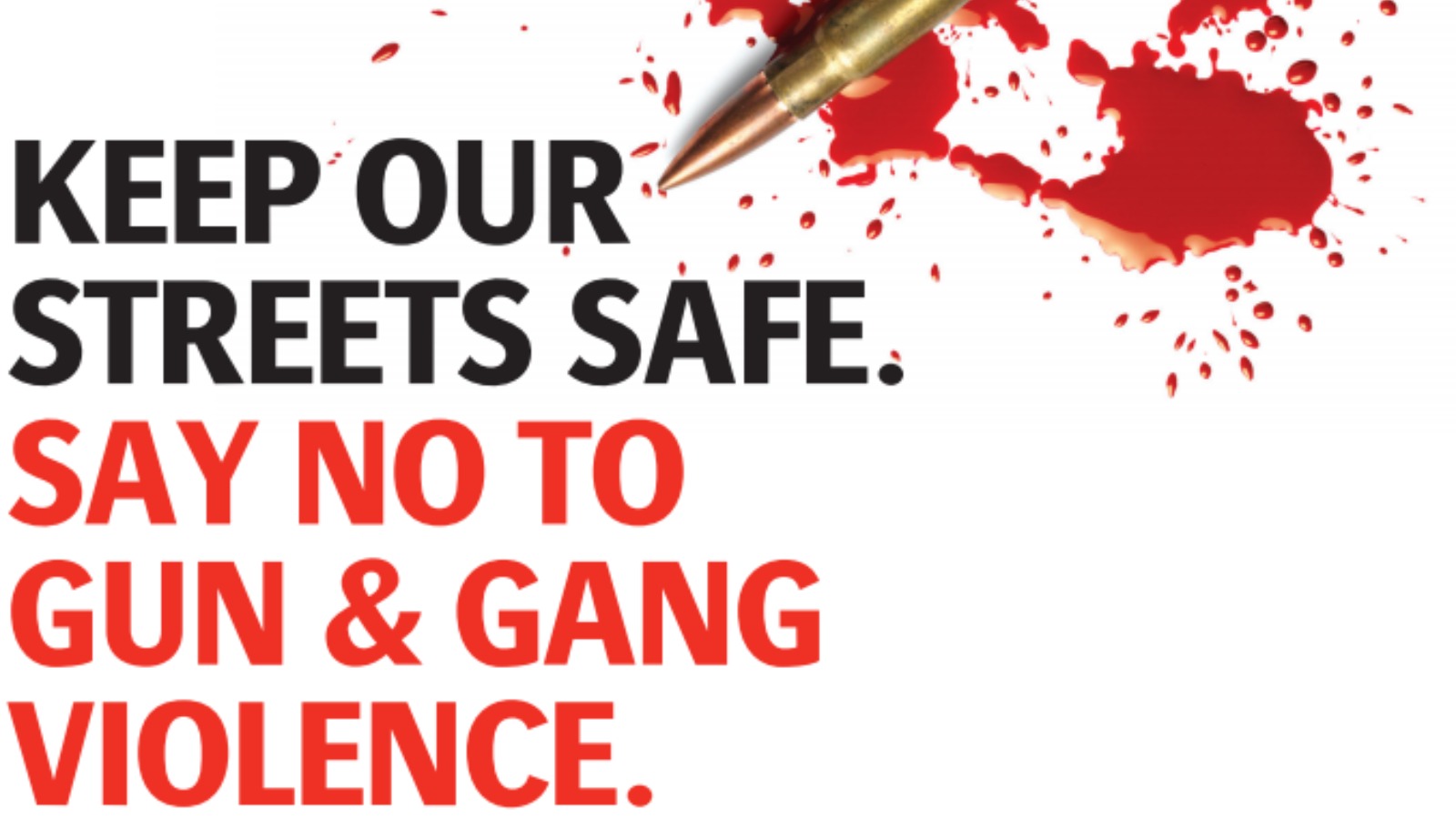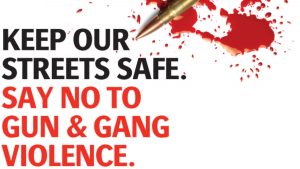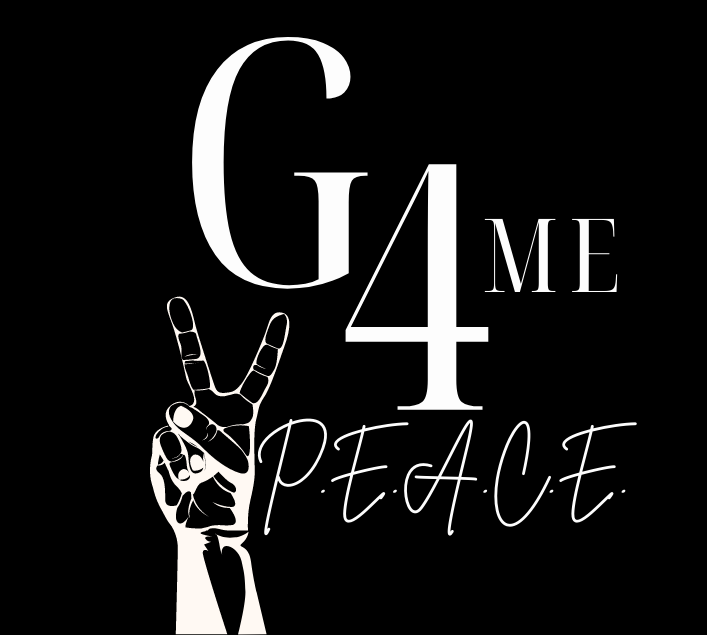The Urgency of Youth Gun Violence: A Call for Collective Action By News Correspondent Gabrielle Nicole
The Urgency of Youth Gun Violence: A Call for Collective Action By News Correspondent Gabrielle Nicole

(Philadelphia, PA) The harrowing story of 7-year-old Fatou Keita, a young life forever altered by a stray bullet in Harlem, calls for a deeper examination of the crisis of youth gun violence. Fatou was caught in the crossfire of a senseless shooting that occurred on a busy street, where a dispute between two individuals escalated into gun violence. The bullet that struck Fatou didn’t just pierce her body—it shattered the lives of her family and the larger community.
As Fatou fought for her life in a hospital bed, prayers and support poured in from around the country. But the emotional and psychological toll of that moment cannot be overstated. Fatou’s family was thrust into an unimaginable nightmare. Her parents, terrified and helpless, found themselves not only dealing with the trauma of seeing their daughter wounded but also navigating the overwhelming fear of what such violence means for their family’s future. Her mother, who once embraced her daughter with dreams for her bright future, now must cope with the haunting question of whether her child will ever be the same. And her father, devastated by the attack, faces the harsh reality of a society where gun violence has become far too common.
This traumatic event for Fatou and her family is just one example of how youth gun violence impacts more than just the victim. It alters families, friendships, and communities, creating ripples of emotional distress and long-term pain. Beyond the physical scars, the trauma inflicted can shape the mental and emotional well-being of young victims for years, if not for life.
For Fatou, the road to recovery is far from simple. As she continues to heal physically, the emotional scars are deeper and harder to see. Fear, anxiety, and depression are common psychological consequences for children exposed to such violence, and young victims often struggle to trust their surroundings again. The anxiety of simply walking outside or hearing the sound of sirens can trigger flashbacks to the day of the shooting. For her family, the fear never truly goes away; it lingers, as they brace themselves for the next step in Fatou’s healing process and try to rebuild the sense of safety that was shattered in an instant.
But the trauma extends beyond just Fatou and her family. The broader community feels the weight of each shooting, as these acts of violence undermine the sense of safety and belonging that every neighborhood deserves.

Solutions Rooted in the Game 4 P.E.A.C.E Principles
1. Perseverance
The fight against gun violence is not a short-term battle; it requires sustained commitment. Communities must persevere in advocating for change despite challenges, from addressing systemic inequalities to implementing reforms that may face resistance. Perseverance also means ensuring continuous support for survivors and victims’ families, like Fatou’s, to help them heal and rebuild their lives. For Fatou’s family, perseverance will mean navigating a long journey of healing, both emotionally and physically, as they face the ripple effects of this traumatic event.
2. Empathy
Empathy involves understanding the root causes of violence—poverty, lack of opportunity, generational trauma—and addressing them compassionately. This principle reminds us that solutions cannot be punitive alone. We must humanize those affected, including youth who are often both perpetrators and victims of gun violence, and work to break cycles of harm through community outreach and support. Fatou’s story reveals the deep emotional trauma that gun violence creates. Her experience is shared by countless young victims who carry invisible scars, which is why it’s essential for communities to respond with understanding, patience, and a commitment to healing.
3. Accountability
Preventing gun violence requires accountability at all levels. Legislators must enact and enforce stricter gun laws, communities must hold leaders accountable for failing to protect citizens, and individuals must take responsibility for their roles in fostering safe environments. Accountability also extends to ensuring fair and unbiased law enforcement practices that build trust within communities. Fatou’s case highlights the importance of holding those responsible for gun violence—whether they are the perpetrators or institutions that allow violence to persist—accountable for the destruction they cause to young lives.
4. Compassion
The trauma endured by families like Fatou’s highlights the need for compassionate responses. Providing accessible mental health services for survivors, families, and community members affected by violence is critical. Compassion must also guide our interactions with youth at risk, offering them second chances and pathways to positive change. Fatou’s healing requires more than physical treatment—it demands psychological and emotional care to help her overcome the trauma she has experienced. Communities must step forward to provide these resources, ensuring that no family faces such pain alone.
5. Evolution
To reduce gun violence, our communities must evolve beyond old, ineffective systems. This means embracing innovative approaches like restorative justice, trauma-informed care, and programs that offer economic opportunities in neighborhoods historically marginalized. Evolution also calls for reforming policing to focus on de-escalation and community partnership. This principle is especially relevant for families like Fatou’s, who need a shift in how communities and law enforcement address the root causes of violence to prevent future tragedies.
6. Excellence
Excellence is about striving for the highest standards in education, governance, and community programming. Schools must become safe havens where young people learn not just academics but life skills, conflict resolution, and emotional intelligence. Leaders must set ambitious goals to eradicate violence and provide the resources necessary to achieve them. Fatou’s story shows that when communities excel in offering resources, education, and mental health support, they can help prevent tragedies before they occur and aid families like Fatou’s in their recovery.
7. Education
Education is the cornerstone of transformation. Teaching young people about the consequences of gun violence, empowering them to resolve conflicts peacefully, and offering mentorship can change lives. Broader education efforts should target all age groups, raising awareness about gun safety and inspiring civic engagement to address violence at its roots. Fatou’s healing also involves learning how to cope with the emotional aftermath of trauma. Educational programs should address the psychological impact of gun violence, teaching young people how to manage trauma and offering them tools to help prevent violence in their own lives.
Building a Safer Tomorrow
Fatou Keita’s survival is a testament to resilience, but resilience alone is not enough to safeguard our children. The emotional and psychological toll gun violence takes on young victims and their families is far-reaching, and we must recognize the need for both immediate and long-term healing strategies. Guided by the principles of Game 4 P.E.A.C.E, we can create a culture that values life, promotes unity, and addresses the root causes of violence. This framework is not just a vision; it is a call to action.
What You Can Do
- Join Game 4 P.E.A.C.E: Call 866-916-game or click here Contact – Game4Peace
- Advocate for Legislative Change: Support local and national initiatives to strengthen gun laws.
- Volunteer Locally: Join organizations aligned with the Game 4 P.E.A.C.E principles to make a direct impact.
- Educate Yourself and Others: Share knowledge about gun violence and the systemic issues that perpetuate it.
- Uplift Survivors: Support victims of violence through donations, mentorship, and community solidarity.


